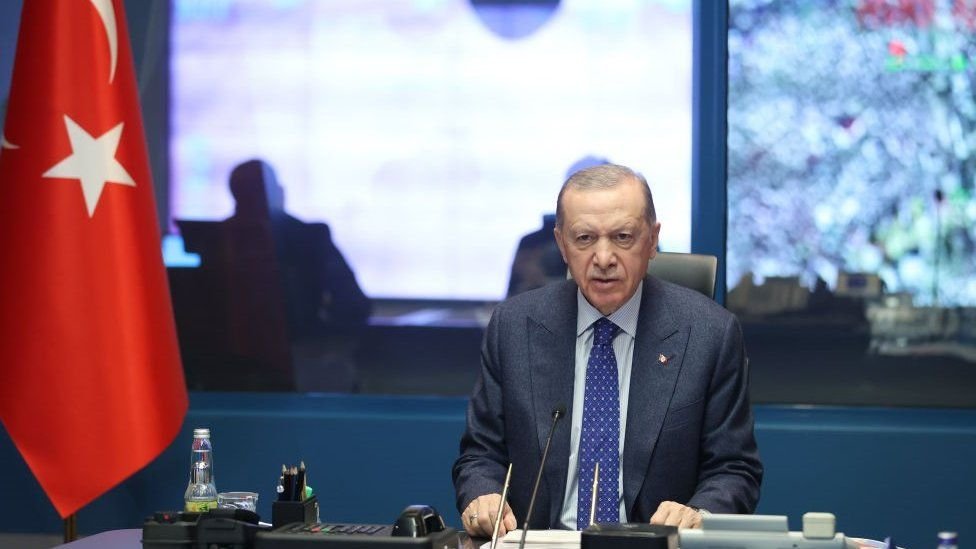President Erdogan accepts quake response problems. Recep Tayyip Erdogan, president of Turkey, defended his government’s response to devastating earthquakes by claiming that it was impossible to foresee the magnitude of the catastrophe.
There are at least 15,000 confirmed fatalities in northern Syria and Turkey. Critics said that the administration was unprepared and that the emergency services responded too slowly.
Although Mr Erdogan acknowledged that the government had faced certain challenges, he said that things were now “under control”.
Kemal Kilicdaroglu, the head of Turkey’s largest opposition party, disagreed. “If there is one person responsible for this, it is Erdogan,” he said.
The president rejected the accusation and said unity was required in the aftermath of the disaster, “In a period like this, I cannot stomach people conducting negative campaigns for political interest,” he told reporters in Hatay.
With many still buried under the rubble, thousands of survivors have been spending a third night in freezing temperatures.
According to a representative of the World Health Organization, frigid conditions could result in serious casualties among earthquake survivors.
“We’ve got a lot of people who have survived now out in the open, in worsening and horrific conditions,” said WHO earthquake response incident manager Robert Holden on Wednesday.
“We are in real danger of seeing a secondary disaster which may cause harm to more people than the initial disaster if we don’t move with the same pace and intensity as we are doing on the search and rescue.”
In nearby Syria, relief efforts have been complicated by years of conflict that has destroyed the nation’s infrastructure. Since the earthquake, the Bab al-Hawa crossing between Turkey and Syria has been blocked due to the severely damaged roadways.
President Erdogan accepts quake response problems. Turkish Foreign Minister Mevlut Cavusoglu acknowledged the country was working to open two more border gates to help bring aid into the country, despite a senior UN official saying the route may soon be available.
“There are some difficulties in terms of Turkey’s and the international community’s aid [reaching Syria]. For this reason, efforts are being made to open two more border gates,” he said.
The EU has confirmed it will send €3.5m (£3.1m) in aid to Syria following a government request for aid but said the aid must be delivered to both government- and rebel-controlled areas.
More than 1,500 people have died in Idlib province alone and an adviser to Syrian President Bashar al-Assad said sanctions were stopping Syria from receiving the aid it required.
“We don’t have enough bulldozers, we do not have enough cranes, we do not have enough oil due to European and American sanctions,” Bouthaina Shabban said.
